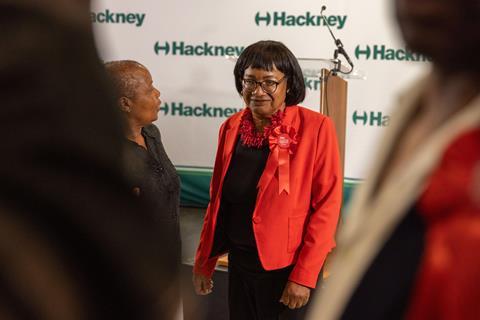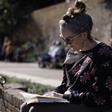In looking at Diane Abbott’s new title, Alex Noel asks, who is your ‘mother of the house’ and as Christians, what does the role entail?

There is a tradition in Parliament, that in the lower of the two Houses - the Commons; the longest continuously-serving female MP is honoured with the title, ‘Mother of the House’. It isn’t an official role per se, but it is a firm acknowledgement of the experience she has acquired over the course of her tenure. Which, as the honour confers, is deserving of respect and recognition - bringing with it a certain authority, and privilege too.
Previously, it was Harriet Harman, who has now left the Commons. And so it passes to Diane Abbott - someone entirely fitting to hold the title in what is proving to be a groundbreaking new Parliament.
Diane Abbott is a trailblazer. In 1987 she became the first ever black female MP
Diane Abbott is a trailblazer. In 1987 she became the first ever black female MP to be elected when she won the seat she still retains - Hackney North and Stoke Newington. Holding on to her constituency in north east London all these years, demonstrates her tenacity and at times, her sheer determination.
Many will have seen the impassioned speeches to her supporters just before the General Election. Her time as an MP has not been without controversy, and her politics certainly aren’t for everyone. But nonetheless, she has faced down those from her own party, from within Parliament and beyond, who would try to dismiss and diminish her.
No doubt she will have many lessons to share with this current cohort of MPs - more than half of whom haven’t held seats before. The General Election on 4th July saw a record number of new MPs elected - 335 in fact (who were inducted into the House of Commons on 9th July). There are more female MPs than ever before, who now make up 40.5% of the Commons. In addition, Sir Keir Starmer has appointed the most gender-balanced cabinet ever. In many ways it is a landmark moment for representation - as the overall diversity of Parliament nears that of the electorate.
At Parliament’s first sitting, it fell to Diane Abbott to give the ‘Mother of the House’ speech.
At Parliament’s first sitting, it fell to Diane Abbott to give the ‘Mother of the House’ speech. As she spoke, she reassured the large number of new MPs that this was a great job to have; they would “never regret coming here”. Reflecting on the past 37 years, she highlighted the contrast between today’s Parliament, and that when she first started. Back then, she was one of only 40 female MPs - now there are 264: “some of us are glad that we have lived to see this”, she said. Abbott also made special mention of her predecessor, Harriet Harman for working tirelessly towards equality and diversity, the fruits of which are self-evident. It’s obvious that these longstanding female MPs have made an indelible mark on Parliament, and paved the way for others to do the same.
In our own contexts - such as our churches or communities, to whom might we give a similar honour? Who is your ‘Mother of the House’? A woman who you look up to because of her wisdom and experience, and who makes a way for others?
Read more on female politicians
I’ll tell you mine: it would be Hazel, my Church Warden. She has seen the 50-strong congregation I’m part of through a lot of change over the last few years. Most significantly in navigating an interregnum (Church of England speak for having no vicar), which lasted nearly two years. During that time, her experience helped to steer our little church, which was dwindling - and its leadership team - who were tiring, through several challenges. Her guidance played a role in enabling us to ‘keep the faith’ as we wondered if we’d be able to stay open at all. No, God would provide just the right vicar for us. And so he did; joyfully exceeding our expectations.
And that’s the gift these ‘Mothers of the House’ are to us - they provide a reassuring presence and a steady hand, something that can only come from years of experience. Because they’ve fought similar (sometimes harder) battles and overcome them, we can benefit from their wisdom - and faith. We would do well to honour them; giving them the recognition and respect they deserve.




































No comments yet